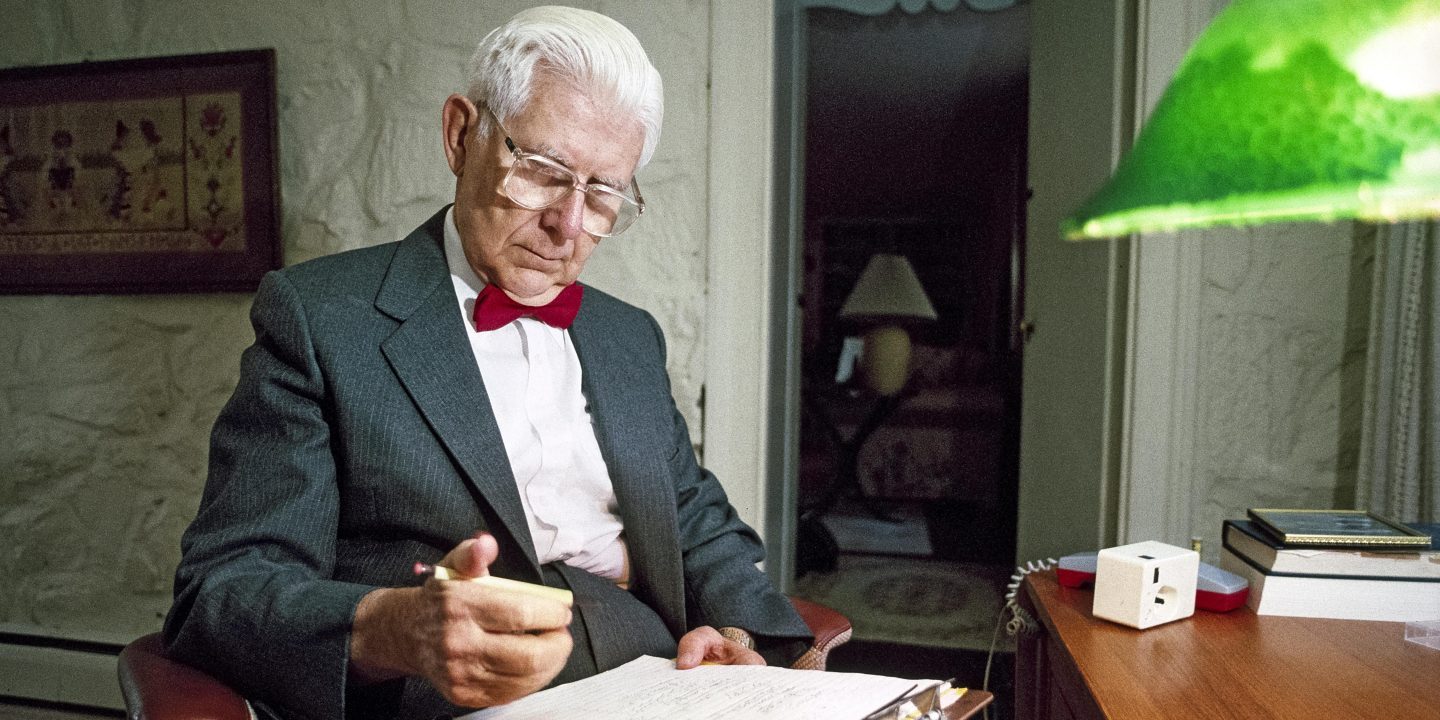His first patient was himself, said the American psychiatrist Aaron Temkin Beck, who revolutionized behavioral therapy in the 1960s. He was born in Providence, Rhode Island in 1921, the youngest of three surviving children of Jewish immigrants from Russia. He broke his arm at the age of eight. Because sepsis developed, he had to stay in the hospital for a month. There he developed a blood and injury phobia.
Panic fear rose in him when he smelled ether. But as his first therapist, he taught himself to overcome fear by focusing on other things and realizing that there was a connection between thoughts and feelings.
research Beck viewed this self-therapeutic experience as the core of his entire research. Its best-known result is cognitive behavioral therapy, which to this day is considered a revolution in dealing with depression. In the course of many therapy sessions, Beck repeatedly encountered negative thought patterns in depressives, which he also referred to as “thoughtless thinking”.
He later defined these thought patterns as the “cognitive triad”. Such a depressive triad relates to the self (“I’m not good enough”, “I’m ugly”), the world (“Nobody loves me”) and the future (“It will always be as horrible as it is”) ).
From these experiences Beck developed his cognitive behavioral therapy, which – in contrast to the pure Freudian theory – does not only see the causes of depression in childhood, but tries to break up the rigid thought structures of the patient. For Beck, the causes of the anxiety typical of depression and the negative feelings of his patients lay in their distorted thinking.
From then on he looked ahead in his treatment of depressed people.
From then on he looked ahead in his treatment of depressed people. With specifically defined therapy goals, worksheets and homework, the patients are challenged and encouraged to contribute to their self-healing. For many, Beck’s approach was a revelation. No more years of agonizing psychotherapy – Beck made great progress in recovery in just twelve sessions.
As a young psychiatrist at the University of Pennsylvania in 1954, Beck had doubts about Freud’s core thesis that mental disorders could be resolved by uncovering long-buried childhood memories. He was skeptical of the role of the therapist.
ANSATZ Over the decades, therapists have adapted the basic approach to cognitive behavioral therapy for various conditions from depression to panic attacks, eating disorders, insomnia, addiction, and pain. In the course of his 70-year career, Beck has written around 600 essays and 25 books or has worked as a co-author and developed classification systems to make symptoms of certain diseases measurable and to weigh up the risk of suicide. His most recent project, on which he worked for well over 90 years, was “Recovery-Oriented Cognitive Therapy” to help people treat schizophrenia.
In 1994 Beck and his daughter Judith founded the Beck Institute for Cognitive Behavior Therapy in Philadelphia to train therapists and further develop the method. It is now also used to treat addiction, eating disorders, or pain.
Aaron Beck died on November 1st at the age of 100. He leaves behind his wife Phyllis, with whom he was married for more than 70 years, as well as four children, ten grandchildren and ten great-grandchildren.
– .


